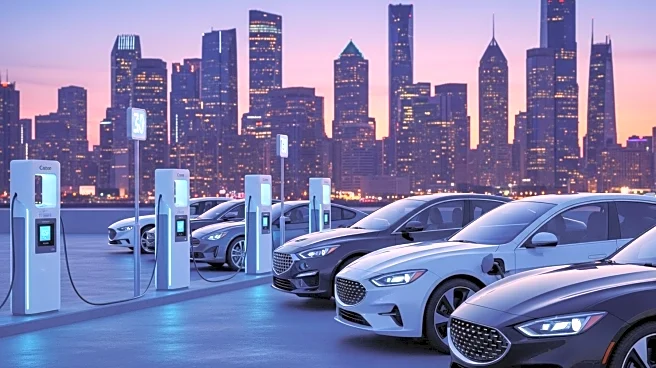What's Happening?
The United States is set to end its $7,500 tax credit for new electric vehicles (EVs) and $4,000 for used EVs, leading to a surge in purchases before the September 30 deadline. This rush is expected to be followed by a drop in sales as the financial incentives disappear. However, the benefits of EVs, such as convenience and environmental impact, are anticipated to drive continued interest and adoption. The surge in new EV owners is likely to generate word-of-mouth promotion, potentially leading to increased awareness and interest in EVs among friends, family, and coworkers.
Why It's Important?
The expiration of the tax credits could have significant implications for the EV market in the U.S. While the immediate effect might be a temporary decline in sales, the long-term impact could be positive as new EV owners advocate for the benefits of electric vehicles. This could accelerate the transition from gasoline-powered cars to EVs, contributing to environmental goals and reducing carbon emissions. The shift could also influence the automotive industry, prompting manufacturers to innovate and offer more competitive EV options.
What's Next?
As the tax credits end, the market will likely experience fluctuations. The initial drop in sales might be followed by a gradual increase as more consumers become aware of the advantages of EVs. Policymakers and industry stakeholders may consider reintroducing or modifying incentives to sustain growth in the EV sector. Additionally, the automotive industry might focus on enhancing EV features and affordability to attract a broader customer base.











